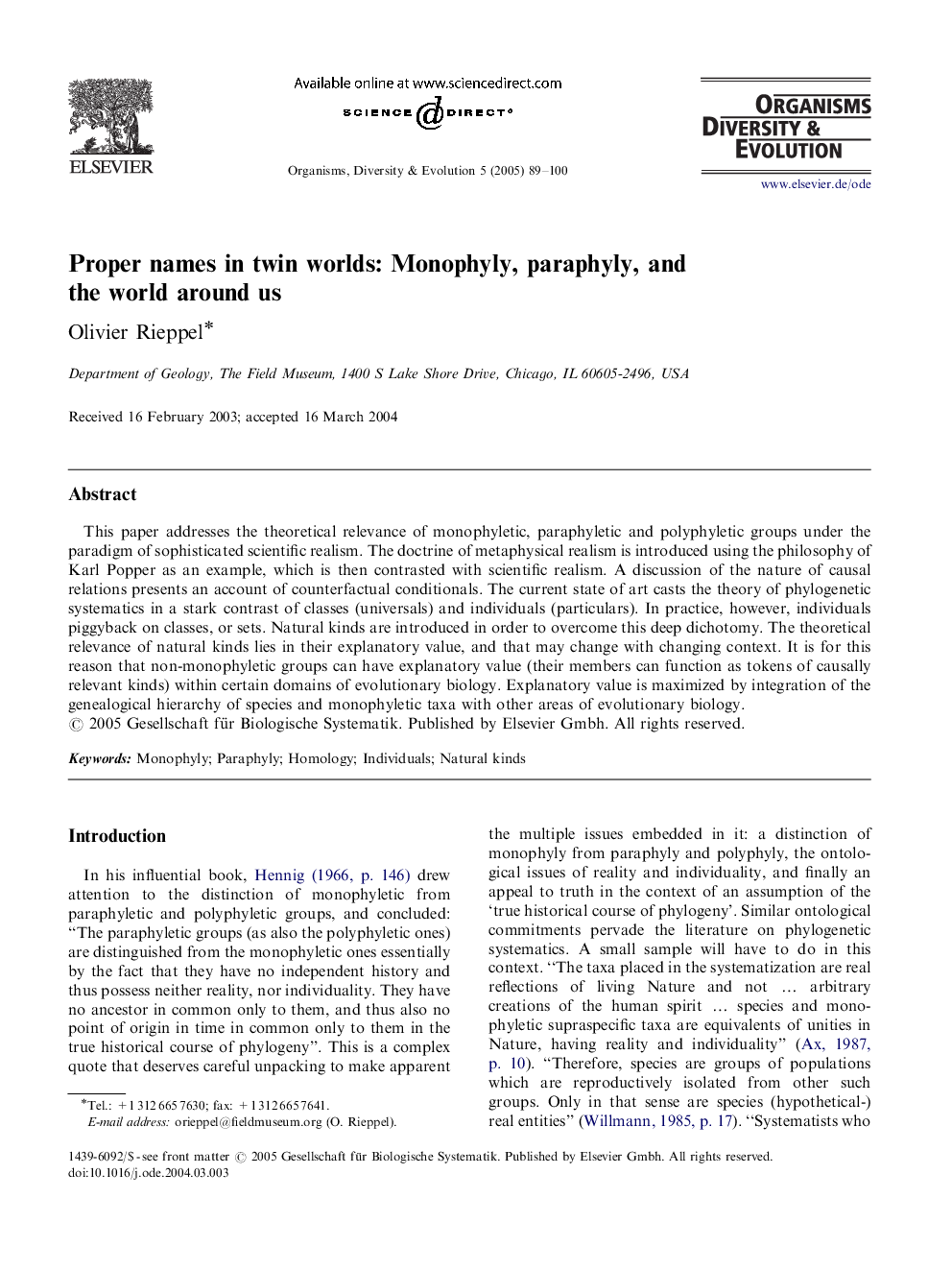| Article ID | Journal | Published Year | Pages | File Type |
|---|---|---|---|---|
| 9461439 | Organisms Diversity & Evolution | 2005 | 12 Pages |
Abstract
This paper addresses the theoretical relevance of monophyletic, paraphyletic and polyphyletic groups under the paradigm of sophisticated scientific realism. The doctrine of metaphysical realism is introduced using the philosophy of Karl Popper as an example, which is then contrasted with scientific realism. A discussion of the nature of causal relations presents an account of counterfactual conditionals. The current state of art casts the theory of phylogenetic systematics in a stark contrast of classes (universals) and individuals (particulars). In practice, however, individuals piggyback on classes, or sets. Natural kinds are introduced in order to overcome this deep dichotomy. The theoretical relevance of natural kinds lies in their explanatory value, and that may change with changing context. It is for this reason that non-monophyletic groups can have explanatory value (their members can function as tokens of causally relevant kinds) within certain domains of evolutionary biology. Explanatory value is maximized by integration of the genealogical hierarchy of species and monophyletic taxa with other areas of evolutionary biology.
Related Topics
Life Sciences
Agricultural and Biological Sciences
Animal Science and Zoology
Authors
Olivier Rieppel,
